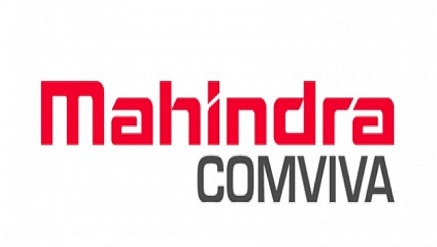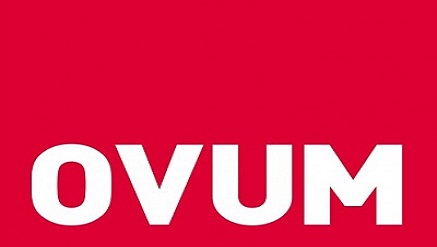E-Business
Mahindra Comviva Bags Mobile Commerce Vendor the Years Award
Mahindra Comviva, the global leader in providing mobility solutions, has won top honors at the 12th edition of Frost & Sullivan India ICT Awards.
Mahindra Comviva has been named the “Mobile Commerce Vendor of the Year” for promoting growth of digital payments.
The Frost & Sullivan awards recognize and acknowledge companies who have pushed the boundaries of excellence – risen above competition and demonstrated outstanding performance in the Information and Communications Technology (ICT) sector in India.
The award presented during a ceremony held in New Delhi on June 24th is recognition of Mahindra Comviva’s commitment to accelerate the adoption of digital commerce through its comprehensive portfolio of solutions catering to the entire ecosystem – consumers, merchants, and banks.
The mobile financial suite of products powers over 120 mobile services in 55 countries and serves over 750 million mobile users globally.
According to Srinivas Nidugondi, senior VP and Head of Mobile Financial Solutions at Mahindra Comviva, “The future of payments is digital and it is now. Given the right mix of consumer access and merchant acceptance, mobile payments can quickly become a very popular way to transact. Our mobiquity® suite of products is designed with the vision to build a viable, vibrant payments ecosystem enabling businesses and consumers to enter into mutually rewarding relationships. The Frost & Sullivan India ICT Awards demonstrates our market leadership in developing innovative digital payment propositions and delivering value, convenience, and a secure, better alternative to cash to consumers and businesses alike.”
Congratulating Mahindra Comviva on the Award, Mr. Benoy CS, director, ICT Practice Frost & Sullivan said that backed by its technological prowess and strategic focus to build services that deliver value to customers across all segments, Mahindra Comviva has created a niche for itself.
An extensive global footprint, market leading products and solutions, easy to use yet enhanced solutions along with strategic alliances and deep domain expertise have seen Mahindra Comviva emerge as the undisputed leader in the mobile financial services domain.
With a huge chunk of the Indian population still unbanked, the ubiquitous mobile platform can provide a number of utility services through m-commerce and m-banking driving financial inclusion in the country.
New age digitally connected customers are increasingly comfortable using the mobile to transact and engage with brands.
Digital payments are essentially a two-sided business, with the utility of holding payment instruments directly proportionate to the number of acceptance points. mobiquity®, an integrated mobile payments platform, is designed to address the fundamental two-sided nature of payments and fuel a virtuous cycle of growth in cashless transactions.
Mahindra Comviva’s award winning product, mobiquity® Money is a highly robust, secure, scalable and feature rich, mobile financial solutions platform that embraces mobile phone as a digital container for holding money and payment instruments.
The platform allows the rollout of full range of banking and payment services across a wide range of devices and channels such as client apps, SMS, USSD, IVR, QR Codes, BLE and NFC – enabling service providers to successfully cater to the needs of various consumer segments.
E-Business
Data Commission, NAICOM Partner to Safeguard Data in Insurance Industry
Nigerian Data Protection Commission (NDPC) and National Insurance Commission (NAICOM) have signed a Memorandum of Understanding (MoU) to protect data pilfering in the insurance industry.
![]()
The agreement was finalised on Friday and aims to address critical concerns around data privacy and ensure that the insurance sector complies with global best practices in data management.
Some of the objectives of a MoU include training and capacity building to enhance awareness and skills in data protection, setting up specialized clinics to address data protection concerns and provide guidance; conducting compliance activities by regularly, monitoring and enforcing compliance with data protection regulations and educating insurance companies on the importance of data protection and the benefits of adhering to best practices.
Mr Olusegun Ayo Omosehin, commissioner for Insurance/ chief executive officer, NAICOM, said, “The collaboration marks a significant milestone in safeguarding the personal data of insurance policyholders and promoting trust in the insurance sector”.
To ensure the effective implementation of the Memorandum of Understanding (MoU), an Implementation Committee will be established.
This committee will comprise representatives from the 2 agencies, as well as other key industry associations, including the Nigerian Insurers Association (NIA) and the Nigerian Council of Registered Insurance Brokers (NCRIB).
The committee’s primary responsibility will be to monitor progress, provide guidance, and facilitate collaboration among stakeholders to guarantee the successful execution of the MoU.
Officials from both NAICOM and NDPC have expressed confidence in the partnership’s potential to strengthen data privacy frameworks within the insurance sector.
They noted that the initiative would boost public confidence, enhance compliance, and position the sector for greater innovation and credibility.
This collaboration is expected to pave the way for a more secure and trustworthy insurance landscape in Nigeria, ensuring the protection of personal data while fostering the industry’s growth.
E-Business
NDPC to Begin Prosecution of Data Privacy Offenders from 2025
Nigeria Data Protection Commission (NDPC) will start prosecuting data privacy offenders from the beginning of 2025, according to Babatunde Bamigboye, head of the Legal Enforcement and Regulation Department of the commission.

This move is part of its efforts to enforce regulations and promote responsible data handling in Nigeria.
Bamigboye, disclosed this during a one-day cybersecurity awareness campaign with the theme “Utilising AI-Powered Services for Proactive Cybersecurity” in Abuja.
The event was organised by SOPHOS UK in collaboration with SPOKES Network and Net-Trix Solutions to foster networking with industry experts on how AI is shaping the future of cybersecurity.
Bamigboye explained that, due to the significant implications of data privacy breaches in Nigeria, the commission has embarked on awareness programmes to educate individuals on their data protection rights and inform data processors and controllers of their obligations.
To this end, he announced that beginning next year, the commission would prosecute any data controllers or processors found in breach of the law.
“At this moment, we have investigated quite a number of cases, and in terms of prosecution—as you know, as a lawyer, this means going to court—but we haven’t taken any matters to court yet.
“This is the formative stage; we understand the implications for the country as a whole. And usually, when you talk about prosecution, it also involves some criminal activities. So, at this moment, our focus has been on creating awareness.
“But from next year, we will step up enforcement in this area. What we have done so far is to take remedial actions against certain data controllers and processors who defaulted under the Act,” he noted.
He assured investors that Nigeria’s cyberspace is secure for digital transactions.
“Nigerian cyberspace is safe; otherwise, we wouldn’t be experiencing the smooth flow of digital transactions in Nigeria. It is safe but not without threats, and we are doing our best as a country to combat these threats.”
Christopher Odutola, a sales engineer at SOPHOS UK, noted in his presentation that 100% cybersecurity cannot be guaranteed, hence the need for proactive measures.
“A lot of people will come to you and say, ‘We can give you 99.9% or 100% cybersecurity.’ It’s not true.
“Nobody can provide 100% security anywhere in the world. What they can do, as I mentioned earlier, is reduce the risk for you. However, determining the extent of risk reduction is difficult.
“It’s impossible to eliminate 100% of risks anywhere in the world. What we provide is what we call a cybersecurity breach protection warranty. This warranty covers incidents such as data breaches or ransomware attacks. For instance, if you lose your files while we manage your SOC as a service, we will reimburse up to one million dollars in response costs.”
Odutola further stressed the importance of organisations reducing cyber threat risks to secure cyberspace.
“There are risks to businesses, risks from downtime, attackers, scammers, and the rest, trying to infiltrate networks.
“The risk is always high. As cybersecurity professionals, we are doing as much as possible to reduce these risks.
“The various security controls we implement—antivirus software, firewalls, email security, cloud security, network security, and others—are aimed at reducing risks. We must focus on minimising risks. For instance, we currently see risks originating from third-party suppliers and vendors.”
According to him, “We have a process called risk assessment, which helps to evaluate vendors to ensure they do not introduce risks into our environment. This is why these security controls are crucial.
“We have them in place. It’s equally important to involve senior management in the discussion, as this is often where the gap lies. Unfortunately, cybersecurity is often perceived as a cost centre.”
Harrison Oloye, chief executive officer (CEO) of Net-Trix Solutions, said the event aimed to raise awareness about cyber threats and equip users to manage potential attacks.
“What we did, as Net-Trix Solutions Limited in conjunction with Spokes Network, is to create awareness and educate the public and private sectors on how to use Artificial Intelligence (AI) to combat cyber threats.”
Speaking further on achievements in creating awareness, he said: “As part of our Corporate Social Responsibility (CSR), we educate and train as many people as possible on the dangers of cyber threats and cyber-related crimes.”
Ms. Sifon Ufot, head of Business at SPOKES Network, emphasised the need to take proactive measures against cyber threats.
“We need to stay cyber-safe because hackers working behind the scenes are not joking—they work 24/7. For us, staying proactive is essential. With the help of AI, we can stay proactive; it provides information beforehand and even prevents some attacks from reaching us.”
E-Business
Nigeria, Others Confront Flood of Cyber-Attacks
Check Point, a cyber security company has reported that Nigeria, South Africa, Kenya, and Morocco are seeing targeted cyber-attacks on government, education, and financial institutions.

In its just released 2024 African Perspectives on Cyber security report, Check Point, said that the cyber security sector is growing by 20-25% annually, fuelled by investments in infrastructure and Artificial Intelligence-driven solutions.
The report said that South Africa has seen 3,312 attacks on government institutions every week and a 90% increase in ransomware, with cybercrime costing the country nearly 1% of GDP.
Kenya, in East Africa, sees 4,719 attacks on the government sector each week, indicating an urgent need for enhanced defenses.
According to the report, Nigeria sees 4,718 attacks every week, which is one of the highest in Africa.
In a recent incident, the report states that a banking trojan assault affected 100,000 customer accounts, resulting in a $3 million loss.
Morocco is one of Africa’s most targeted countries, with 8,733 attacks on government entities reported each week, the report said.
According to Check Point, the Moroccan government recently faced a state-sponsored cyberattack that compromised classified communications, raising significant national security concerns.
“Organisations in Africa are attacked roughly 3300 times per week, if we look at the global average it is about 1 800, it is almost double the attacks,” said Hendrik de Bruin, head of security consulting at Check Point SADC during the presentation.
Check Point noted that the continent’s GDP is predicted to exceed $4 trillion by 2027, and digital infrastructure has emerged as a key driver of economic growth. However, rapid digitisation has resulted in increased vulnerability.
De Bruin explained: “We are slowly, but surely digitalising our industries, we are digitising our governments, private sectors are digitising themselves, so we have got an expanding digital attack footprint.
“We also have cloud adoption, which is not new, but picking up pace in Africa. That is another way that these attackers are using to gain access to organisations, and we also see a large uptake on cloud specific attacks as well.”

 E-Business2 days ago
E-Business2 days agoNDPC to Begin Prosecution of Data Privacy Offenders from 2025

 E-Financial1 day ago
E-Financial1 day agoEFCC Says Nigerian Banks are Notorious Conduits of Financial Crimes

 Telecom1 day ago
Telecom1 day agoNASENI Retreat Focuses on Aligning Development Institutes’ Goals

 E-Business2 days ago
E-Business2 days agoNigeria, Others Confront Flood of Cyber-Attacks

 E-Business2 days ago
E-Business2 days agoNITDA Alerts Businesses to Rising Ymir Ransomware Threat

 Telecom2 days ago
Telecom2 days agoIHS Nigeria Partners with the NCMM to Digitize Nigeria’s Cultural Heritage

 News2 days ago
News2 days agoHead of Civil Service Celebrates 100 Days in Office with the Launch of Galaxy Backbone’s “Govmail”

 E-Financial2 days ago
E-Financial2 days agoAfrica Processed 49Bn Transactions in 2023 – SIIPS Report






















